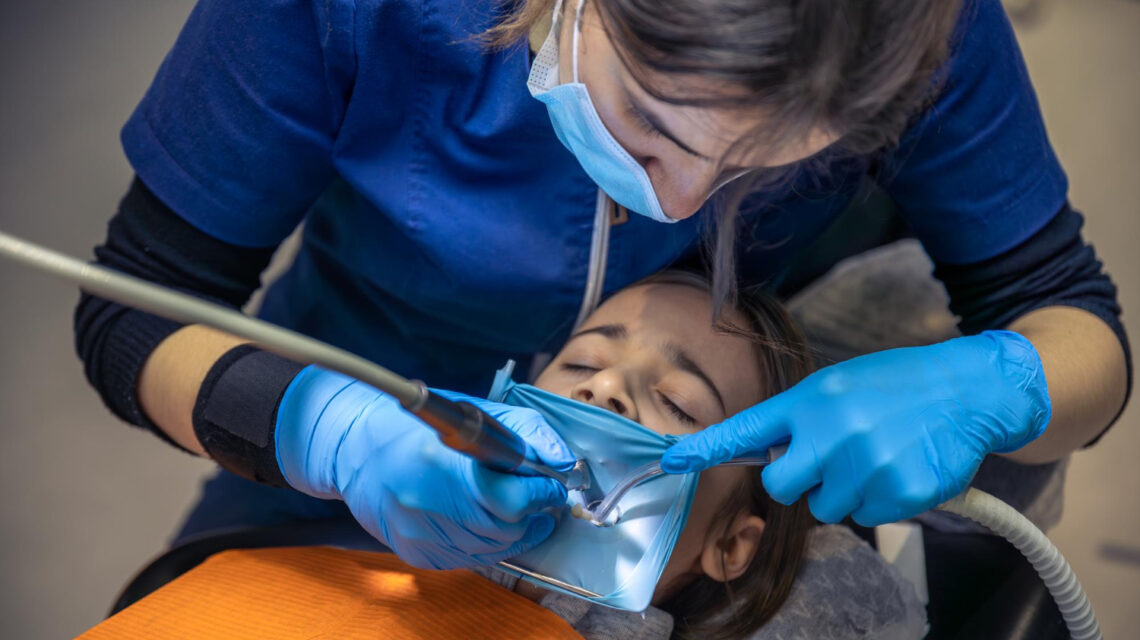Dental emergencies can happen at any time—a youngster may bite down on sweets too forcefully, chip a tooth during soccer practice, or have an inexplicable throbbing ache that wakes them up in the middle of the night. To avoid long-term harm and maintain dental health, these unforeseen events need prompt, well-informed intervention. In contrast to conventional dental treatment, emergencies don’t give time for study or hesitation; therefore, planning beforehand is essential.
This comprehensive guide equips you with strategies to handle common dental emergencies with confidence.
1. Understand Common Dental Emergencies
The first step in preparing for a dental emergency is to understand the types of situations that may require immediate attention. These emergencies include:
- Toothaches: Severe, sudden pain in the tooth may indicate an infection, cavity, or other issues that require prompt care.
- Broken or Chipped Teeth: Accidents or falls can lead to fractured teeth, which often require quick action to prevent further damage.
- Lost Fillings: If a filling or crown becomes loose or falls out, it can cause discomfort and expose the tooth to harm further.
- Knocked-Out Teeth: A sudden impact to the mouth can cause a tooth to be completely dislodged. This is a situation where immediate care is needed to save the tooth, possibly.
- Injuries to the Gums or Soft Tissues: Cuts or lacerations to the gums, lips, or cheeks can cause significant bleeding and require prompt care.
2. Choose a Family Dentist and Emergency Dentist
The next step in preparing for a dental emergency is to have trusted professionals whom you can contact when needed. Establish a relationship with a reliable family dentist who can provide routine care and help monitor your family’s oral health. Regular visits to the family dentist can help prevent many dental issues from escalating into emergencies.
Know the phone number of your nearest emergency dentist. These professionals are available to provide urgent care on evenings, weekends, or holidays when your family dentist is not available.
3. Create an Emergency Dental Kit
Keep an emergency dentistry kit. You might wish to include the following items in your kit:
- Gauze or Cotton Rolls: To help stop bleeding in case of injuries to the gums or soft tissues.
- Temporary Dental Filling Material: For emergencies, such as a lost filling, this material can provide temporary protection to the tooth until you can see a dentist.
- Cold Pack: To reduce swelling or discomfort from a tooth injury.
- Pain Relievers: Over-the-counter medications can help manage pain until you are able to see a dentist.
- Dental Floss: In case food becomes lodged between your teeth and causes discomfort.
- A Small Container: for storing a knocked-out tooth, which can be reimplanted by a dentist if treated promptly.
4. Know What to Do in an Emergency
Avoid placing aspirin directly on the tooth or gums when you have a toothache. Instead, rinse your mouth with warm water, use dental floss to remove any food particles, and then consult your dentist for further guidance. Use a cold compress to minimize swelling, rinse with warm water if a tooth is chipped or fractured, and save any broken pieces to take to your dentist.
If a tooth is knocked out, try to put it back in its socket by gently rinsing it with water without scraping it, or keep it in milk or saline solution while you get emergency dental treatment. Use gauze or a clean towel to stop bleeding from wounds to the gums or soft tissues. If the bleeding doesn’t stop, apply pressure and get help from a dentist as soon as possible.
5. Keep Emergency Contact Information Handy
In an emergency, time is of the utmost importance. Keep the contact information for your family dentist and emergency dentist in a place where all family members can easily access it. You may also want to save these numbers in your phone for quick dialling.
6. Educate Your Family
Teach children how to avoid risky behaviours that could lead to injury, such as playing with hard objects or engaging in rough physical activities without protection. The more everyone in the household knows about dental emergencies, the better prepared they will be when an emergency occurs.
Schedule Your Family’s Next Visit to the Dentist!
Preparing your family for a dental emergency is an important step in maintaining good oral health. At Strathroy Family Dental, we are committed to providing quality care and guidance for all your family’s dental needs. Contact us today to schedule your next check-up or to learn more about our emergency care services.


